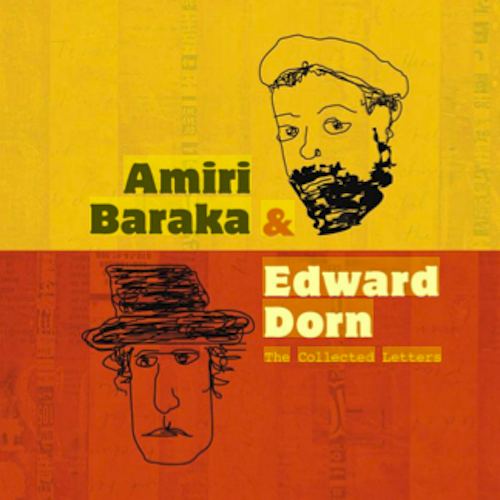A Look into the Letters of Baraka & Dorn and Robert Creeley

Not to be missed, though we almost did miss this one, is Alan Gilbert's review of two books of collected/selected letters: Amiri Baraka and Edward Dorn: The Collected Letters and The Selected Letters of Robert Creeley now up at Boston Review. Gilbert surveys the books, writing:
One value of a writer’s correspondence is the glimpse it offers of the private life behind the public one, although often the two become synonymous as the writer becomes more famous. And while letters might reveal a writer’s sense of current events, these are frequently secondary to literary or intimate concerns, even among the politically committed. Thus Claudia Moreno Pisano’s approach in editing Amiri Baraka and Edward Dorn: The Collected Letters is to scatter pieces of historical and political context around the personally revealing materials she has studiously compiled. For the more massive Selected Letters of Robert Creeley, edited by Rod Smith, Peter Baker, and Kaplan Harris, the task is to annotate a vast range of biographical and literary references, but only after sifting through 10,000-plus letters and—according to the Stanford University libraries, where Creeley’s archives are housed—almost 15,000 emails.
Gilbert finds a remarkable spirit of generosity (particularly on the part of Baraka) and mutual kindness in the Baraka/Dorn correspondence:
One of the most remarkable aspects of the correspondence is how consistently and energetically Baraka supported Dorn’s work, even as his own literary reputation grew. Where he once helped place Dorn’s poems in mimeographed magazines and published his first two books with his own Totem Press, he was soon showing Dorn’s manuscripts to agents and mainstream publishing houses. Baraka’s championing continued until the end of this phase of their correspondence when, in a final letter, he asked Dorn if he’d like to take Baraka’s place at what became the landmark Berkeley poetry conference during the summer of 1965, a gesture that testifies to the strength of their connection, the affection between their families, and the shared progressive politics Baraka knew Dorn would take with him.
Gilbert goes on look at the Creeley letters and finds them "less relentlessly personal than the ones Baraka and Dorn exchanged as young poets." But throughout his letters Gilbert notes Creeley's generosity in providing feedback on others' writing, in which the reader can find a distinctive poetics.
Go yourself now and read up at Boston Review. And if you want a preview of some of the letters, check out this Creeley portfolio published in the October 2013 issue of Poetry.


